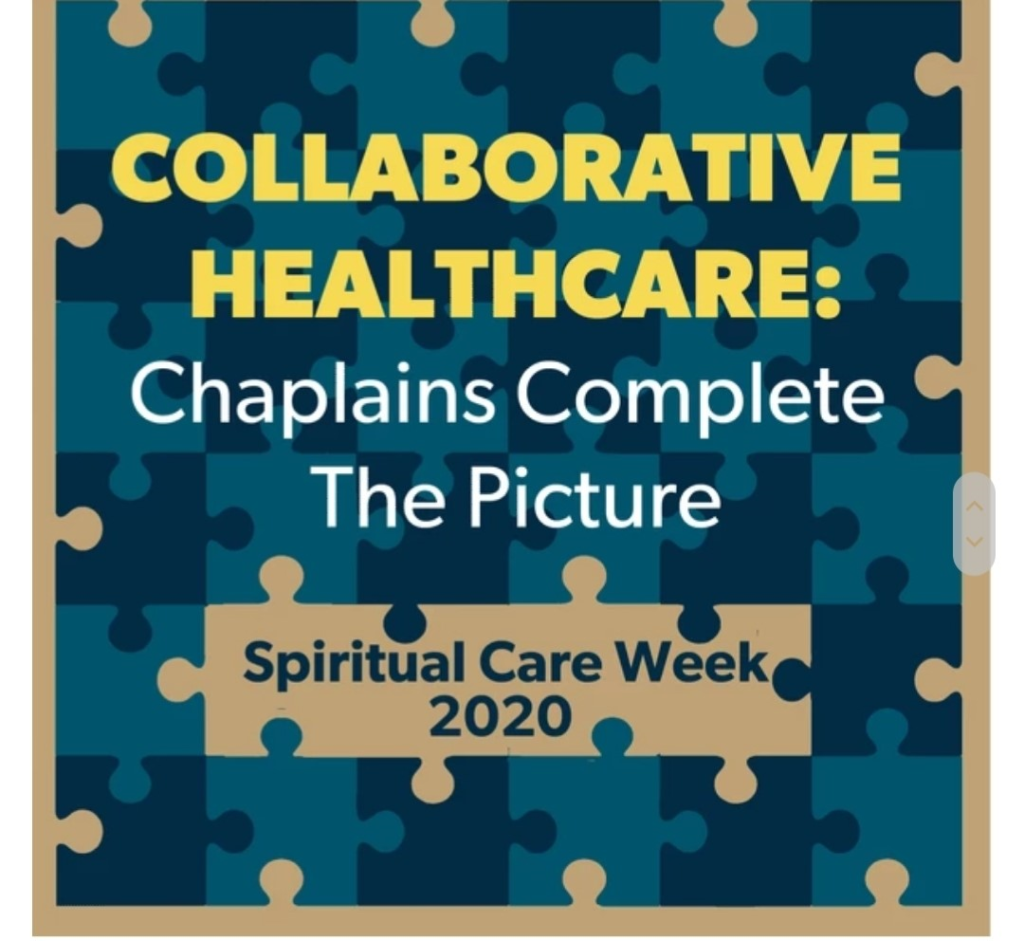Non RPN Workload Complaint Form
This form is now accessible in the Resources page
1ST BARGAINING PROPOSALS FOR LOCAL 5441
CUPE 5441 Bargaining Proposal Meeting
We hope you are available to join us as we discuss the bargaining proposals for our 1st Collective Agreement.
Please come and ask questions, voice your concerns, and hear updates about bargaining and what we hope to achieve.
This 1st Collective Agreement will include all 3 sites with every classification in Service & Clerical.
Tuesday November 10, 2020
5pm-7pm Zoom
SPIRITUAL CARE WEEK 2020
OCTOBER 25 TO 31, 2020
This week, we celebrate National Spiritual Care Week a time to honor and celebrate all practitioners of spiritual care. Taking place from October 25-31, this year’s theme, Collaborative Healthcare: Chaplains Complete the Picture, highlights the invaluable role chaplains / spiritual care practitioners play in supporting patients, families and staff.
Revd. Pamela Lucas
V.P. Spiritual Care / Chaplains
CUPE 5441

New directive 5 rules
Good morning everyone
As you know, the government has agreed to increase our members’ right to access N-95 masks in return for OCHU-CUPE, SEIU and Unifor withdrawing our legal action.
We asked Goldblatt Partners to produce a simpler Guide to Directive #5, which we have produced, together with SEIU and Unifor.
We are working on a membership card which outlines their rights in simple terms.
Thanks very much,
Michael, Louis, and, Sharon
CUPE Local 5441 Bylaw Letter From September 9, 2020
Hi,
Please see attached letter from Brother Mark Hancock regarding Local 5441 bylaws.
In solidarity,

Michel Saucier
Executive Secretary | Secrétaire exécutif
National President’s Office | Bureau du président national
Canadian Union of Public Employees
Syndicat canadien de la fonction publique
PSW Wage Enhancement Announcement
Dear sisters and brothers and friends,
Please find attached a media release put out this afternoon by CUPE Ontario and OCHU about the PSW wage enhancement announcement.
We will convene a call for local leaders to review this once we have more detail.
In solidarity,
Michael, Louis, and Sharon
Resignation of Lead Steward Service – St Joe’s site
Hi everyone,
Please see attached announcement regarding Danielle Irwin’s resignation. We appreciate all her hard work and what she brought to our executive. Danielle is moving to St. Michael’s Hospital to work as an RPN beginning October 10, 2020. We wish her of course all the best in her future endeavors!
Executive
CUPE Local 5441
Unity Health Toronto
St Joe’s St Mike’s Providence
